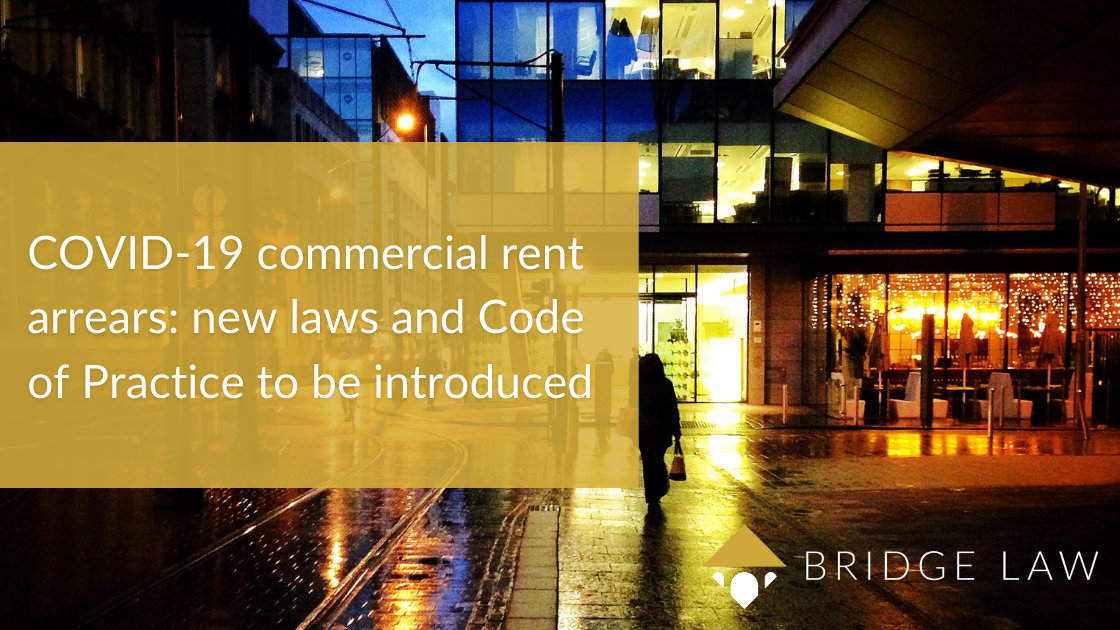COVID-19 Commercial Rent Arrears: New Laws and Code of Practice to be introduced

Last week, on the 9th November 2021 the UK Government’s Business Secretary, Kwasi Kwarteng announced new laws and a Code of Practice are going to be introduced to resolve remaining commercial rent debts from the pandemic.
Currently, commercial tenants are protected from evictions until the 25th March 2022 under the laws the Government introduced during the pandemic, with the aim of protecting jobs – when many commercial tenants had to close in part or full during national restrictions.
However, recognising many commercial tenants have been hugely impacted by the pandemic, many may still be unable to reach an agreement before the end of the eviction protections in March.
Therefore, the new laws and Code of Practice which are set to be introduced from the 25th March 2022 in the Commercial Rent (Coronavirus) Bill, will create a process for parties to apply for a legally-binding arbitration process (a form of alternative dispute resolution) within 6 months of the day the Bill comes into force, to reach an agreement on how to resolve debts accrued during the pandemic, rather than having to go through court proceedings.
It is important to note, this Bill will only apply to debts accumulated during the forced closure period of the covid restrictions, whether in part or full (i.e. from March 2020 until the date covid closure restrictions ended for the tenants particular sector). Any other debts will not be applicable to be dealt with under this particular Bill.
Along with these changes announced last week, from the 10th November 2021, the Government have also introduced protections for commercial tenants, preventing them from being subject to debt claims issued against them in County Court Judgements or High Court Judgements for rental debts accrued during the pandemic forced closure periods.
The purpose of these new measures introduced by the Government is to encourage landlords and tenants who have not yet found a way forward, to work together to reach an agreement as quickly as possible.
Whilst the new laws and code are focusing on alternative dispute resolution and consultation, some landlords argue they want the full powers back they had pre-pandemic. The new laws, however, will enable both parties to plan for the future and recover from the unavoidable and unprecedented impact of the pandemic, without being detrimental to the economy and jobs.
It is also expected of commercial tenants that are now capable of paying rent debts, to find a solution with their landlord, that allows them to begin repayments whilst enabling the business to survive.
Where possible it is always advised agreements are reached amicably, without having to go down an arbitration or court claim route. However, it is worthwhile to seek professional legal advice to understand your particular position and the best way forward.
For further advice on a commercial property, landlord or tenant matter, contact our specialist property team.
Written by Jonathan Cass

Commercial Property, landlord and tenant, Property, property law
